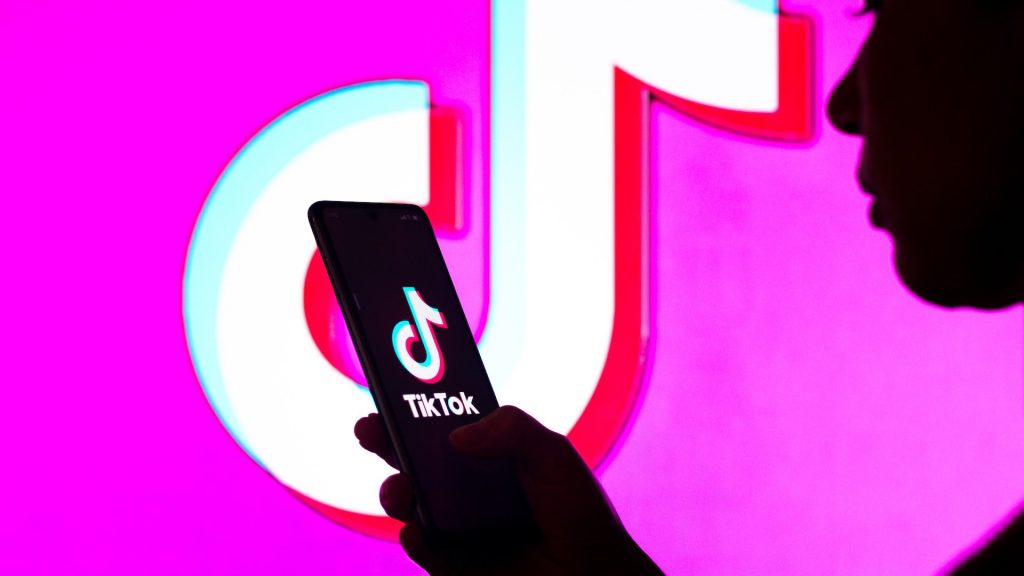TikTok is facing increasing limits and bans on a global scale.
In the U.S., a ban has been looming since last year, and a congressional hearing with TikTok CEO Shou Zi Chew has made many a headline. Come 2024 and President Biden signed off on a bill that demands its parent company ByteDance to divest from the app – or face a ban in the country.
Beyond, across North America, Europe and Asia, several countries have implemented some level of restriction on the the app, largely over privacy and cybersecurity concerns connected to its parent company ByteDance, which has ties to the Chinese government. International government bodies including the European Commission and NATO have banned staff from using TikTok on their corporate phones, as have federal governments in countries across the globe.
Here are the countries that have invoked partial or total bans on the app.
Afghanistan
The Taliban banned TikTok in Afghanistan in April 2022, saying that the platform’s content “was not consistent with Islamic laws”, according to Bloomberg.
Australia
On April 4, Australia banned the app from all federal government-owned devices, citing security concerns raised by the the Department of Home Affairs. Attorney-General Mark Dreyfus said the ban would be imposed “as soon as practicable”.
Belgium
Belgium banned TikTok from the work phones of government officials. Prime Minister Alexander De Croo said in a statement to Politico, “We can’t be naive: TikTok is a Chinese company that currently is mandated to cooperate with Chinese intelligence services.”
Canada
Mirroring other countries, Canada banned TikTok from all government mobile devices in February of this year. Mona Fortier, President of the Treasury Board, said the partial ban is due to the app presenting “an unacceptable level of risk to privacy and security.”
“The decision to remove and block TikTok from government mobile devices is being taken as a precaution, particularly given concerns about the legal regime that governs the information collected from mobile devices, and is in line with the approach of our international partners,” she said in a statement.
Denmark
Denmark’s Defense Ministry banned employees from having TikTok downloaded on their work devices in March. Again related to security considerations assessed by the country’s Center for Cyber Security, staffers were told to remove the app as soon as possible.
India
India made moves against TikTok in 2020, implementing a nationwide ban on TikTok and 58 other Chinese apps, for “[engaging] in activities which is prejudicial to sovereignty and integrity of India, defence of India, security of state and public order.” The government put the ban in place after a deadly border clash between Indian and Chinese military forces. India is the largest country to place a blanket ban on the app.
Featured Video For You
Nepal
In November 2023, Nepal banned TikTok for disrupting “social harmony”. The BBC reported that the ban would come into effect immediately, according to Minister for Communications and Information Technology Rekha Sharma, who said that the app spread malicious content. TikTok is widely used in the country, especially by younger and female social media users.
The Netherlands
While not an outright ban, Dutch officials have been told not to use TikTok. The recommendation is in line with several other government service bodies, but is being less monitored in the Netherlands, a spokesperson for the general affairs ministry told Politico.
New Zealand
Following several European countries making similar decisions, New Zealand’s parliament announced a ban on TikTok on all staff devices.
“This decision has been made based on our own experts’ analysis and following discussion with our colleagues across government and internationally,” read the government’s statement made by parliamentary service chief executive Rafael Gonzalez-Montero. “Based on this information the Service has determined that the risks are not acceptable in the current New Zealand Parliamentary environment.”
Norway
The Norwegian Parliament banned TikTok on governmental devices in March, though allowing civil servants to use the app on professional grounds on their personal devices. The country’s justice minister Emilie Enger Mehl said in a statement, “The Norwegian intelligence services single out Russia and China as the main risk factors for Norway’s security interests.” Mehl experienced her fair share of scrutiny over having TikTok on her work phone albeit before the ban.
Somalia
In August 2023, Somalia banned TikTok over concerns of terror-related content. The government said terrorist groups are using platforms like TikTok and Telegram to spread “horrific images and misinformation to the public.”
Taiwan
Government devices in Taiwan were banned from using Chinese-made software, including TikTok, in December 2022.
United Kingdom
British government ministers have been banned from using TikTok on work phones and devices, following reviews by the UK’s National Cyber Security Centre. Cabinet office minister Oliver Dowden explained in a statement that the government’s decision “is in line with similar restrictions brought in by key international partners”, citing the U.S. and Canadian governments and the European Commission.
“Given the potentially sensitive nature of information which is stored on government devices, government policy on the management of third party applications will be strengthened and a precautionary ban on TikTok on government devices is being introduced,” the statement read.
United States
In short, it’s complicated. The latest: on April 24, President Biden signed the bill that will ban TikTok in the U.S. if ByteDance fails to divest from the app within the next year.
This is the result of efforts that made significant headway this year. On March 14, the House of Representatives passed a bill that could ban TikTok, unless its parent company ByteDance divests from the app. The bill was passed once again in April, and headed to Senate afterwards.
In response, TikTok has been campaigning to save itself on U.S. soil, with its CEO Shou Zi Chew indicating that the company could take legal action, while also lobbying TikTok creators and businesses: “This bill gives more power to a handful of other social media companies. It will also take billions of dollars out of the pockets of creators and small businesses. It will put more than 300,000 American jobs at risk and it will take away your TikTok.”
After the President signed the bill, TikTok released a statement calling the decision “unconstitutional.”
“We believe the facts and the law are clearly on our side, and we will ultimately prevail. The fact is, we have invested billions of dollars to keep U.S. data safe and our platform free from outside influence and manipulation,” said the company.
Prior to all of this, federal agencies were asked to delete the app from staff phones, with the White House already disallowing TikTok on devices. In March 2023, CEO Shou Zi Chew provided testimony in Congress, defending the app and bringing up “Project Texas”, the company’s initiative to protect user data in the States. Months later, the Montana House of Representatives passed a ban on TikTok, leading to the possibility of the app becoming illegal if the state’s governor signs the bill. However, a judge blocked the state’s ban, declaring the bill to be unconstitutional with regards to the First Amendment right to free speech.
This is all to say, the future of TikTok in America remains in question. TikTok is fighting back, and so are its users.
Here’s everything you need to know about the possibility of a U.S. ban of TikTok.







